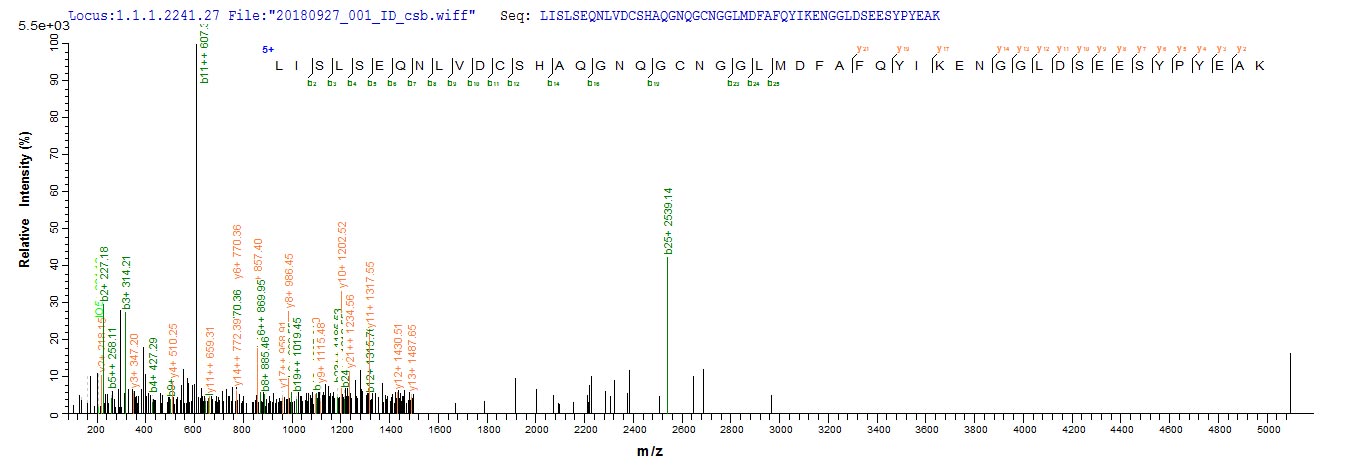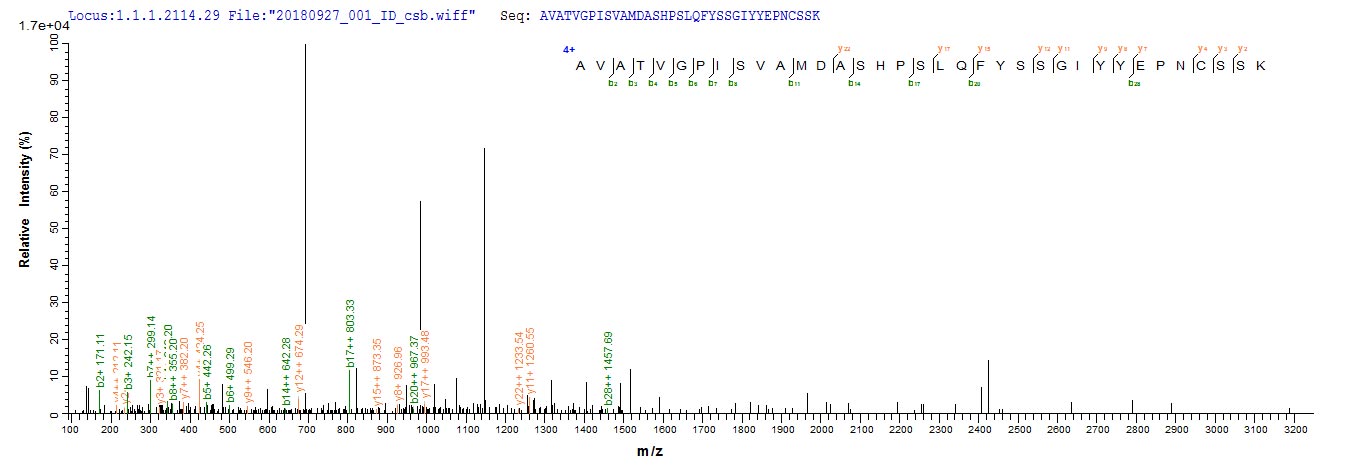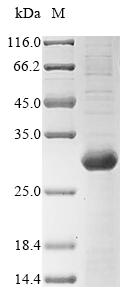Expand your research horizon with our Recombinant Mouse Ctsl, also known as Procathepsin L or Cathepsin L1. As a key player in signal transduction, this protein offers a window into the intricate network of cellular communications. Recombinantly produced in E.coli, it stands as an essential asset for your experimental inquiries.
The protein exhibits a partial length (114-288aa) and is expressed with a dual tag: N-terminal 6xHis-tag and C-terminal Myc-tag, which ensure its efficient purification and high stability. With a purity greater than 85% as determined by SDS-PAGE, our Recombinant Mouse Ctsl meets the demands of scientific rigor. You have the flexibility to choose between a liquid form or a lyophilized powder, depending on your research needs and workflow.






